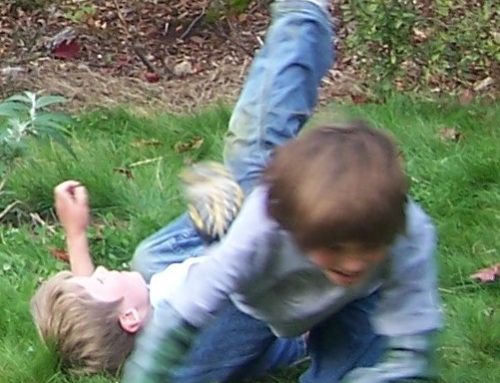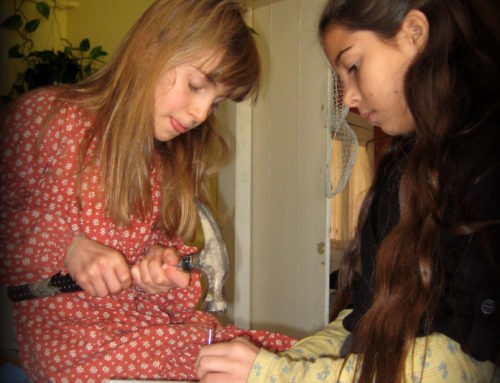I am re-reading a children’s classic-Tom Sawyer. I am struck not only by the high level of autonomy and freedom the boys posses in this book, but also the great degree of self-confidence, trust and self-reliance. The reality of structure, supervision and control of kids lives has become, for the most part, the predominate experience. Between sports and homework and whatever extra-curricular activities kids are involved in- when is there time to play, to discover, to imagine, to dream? When do kids get to figure things out for themselves, rely on their own intelligence and resources, solve their own problems and make their own adventures? Childhood as we once knew it is fast becoming extinct, giving way to a highly controlled, structured and increasingly uniform experiences that most certainly do not cultivate independence and self-trust and often lead to conformity, obedience, and lack of confidence and inability to be self-reliant.
Adults of my generation- growing up in the 80’s have common remembrances of roaming the neighborhood, playing at our own games, riding our bicycles and having all manner of adventures. Adults were there in the background for assistance when needed but pretty much other wise, we were expected to entertain ourselves, make our own adventures, and solve our own problems. I think we’ve forgotten how to allow kids the spaciousness to have their own lives and to solve their own problems always jumping in with adult solutions. I remember that I organized my own birthday parties, complete with home-made pinatas with only the occasional adult assistance when I asked for it. What kind of unintentional messages are we sending by being ever-present, ever helpful and constantly designing and planning kids lives for them, leaving them little or nothing to figure out? There’s a sense of self-reliance and freedom that comes with being trusted to work out your own problems and to run your own life, while knowing there’s support and resources if you need it.
I could go on with this topic of the encroachment of adults into the lives and spheres of children in many different directions. For now I just want to plant these seeds for thought and let it be a beginning place for conversation and dialogue.
For further exploration of this topic, check out Chris Mercogliano’s book, In Defense of Childhood, Leave those Kids alone, and the blog Free Range Kids
Share your thoughts and comments below~


Hi Elana.Good thoughtful article! I remember thinking that about Tom Sawyer and Huck Finn when I read them. I grew up in the 80’s too but I didn’t have the same freedom that you had as a child. I didn’t live in a community that my parents thought was safe enough to roam around by myself as much. How do we determine what is ‘safe’ and how do we build trust in our neighbors not to hurt our children and in our children to take care of themselves? Where is that place in between totally non-structured neglect and loving freedom?
ooh.. I take some of that back. I now am remembering summertime adventures where parents were just not part of the picture. I still think, though, that my parents jumped in more than what you describe about your childhood. I think it was at that sweet age of somewhere between 8 and 11. Fun times!
Depending on place and family I’m sure kids’ sense of freedom and autonomy varied, and my parents, quite busy with other things may have been more hands-off than most. However, I really do think that over the generations of the last century kids have been given smaller and smaller territory, both actually and metaphorically that they have the freedom or are trusted to navigate on their own. Very good questions you pose… what’s the fine balance between running kids lives for them and being absent, uninvolved and not trusted as a support and resource when one is needed.
I totally agree with you, kids don’t have an apropiate place to play, they often live in an adult territory whrere they aren’t allowed to express theirselves as children, but as little adults. The life we offer them doesn’t leave them freedom to realise of their potencial as perfect human beings.